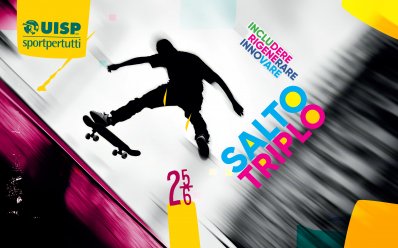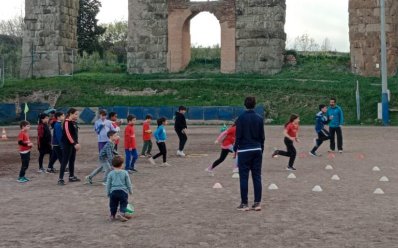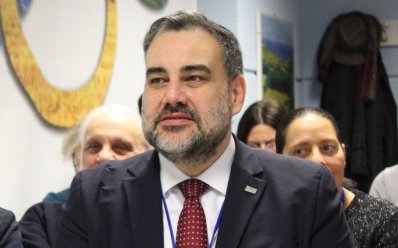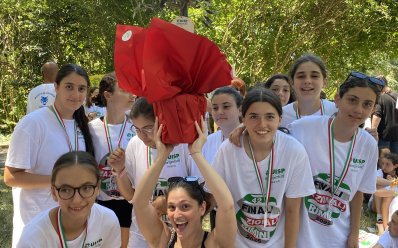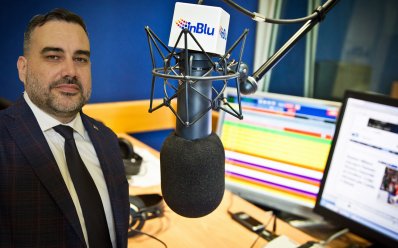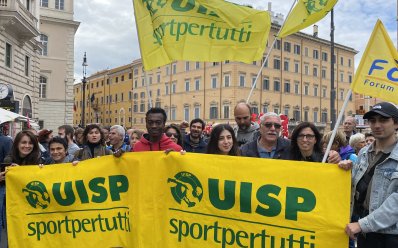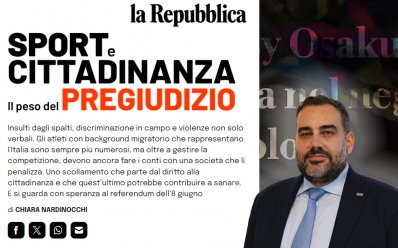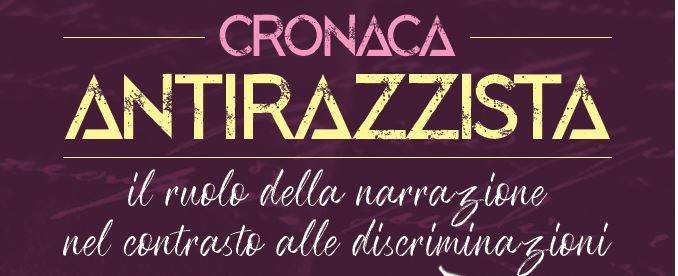SPIN REFUGEES
Sport inclusion of refugees across Europe
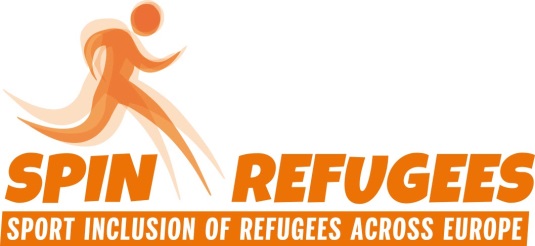
Duration: 36 months: 01 January 2020 - 31 December 2022
Location: The project has a European scope and takes place in the 9 European partner countries: Austria, Italy, Ireland, Germany, Portugal, Holland, Finland, Hungary, Denmark
Applicant/Coordinator: Vienna Institute for International Dialogue and Cooperation (VIDC)
Partners:
- UISP APS – Unione Italiana Sport Per Tutti (Italy)
- FAI – Football Association of Ireland (Ireland)
- Camino (Germany)
- SJPF – Portuguese Players Union (Portugal)
- Huis voor Beweging (Holland)
- Liikkukaa (Finland)
- MGHRO - Sport for all, Mahatma Gandhi Human Rights Organisation (Hungary)
- ISCA – International Sport and Culture Association (Denmark)
- BSO – Austrian Sports Organisation (Austria)
Funding body: EU, Sport as a tool for integration and social inclusion of refugees, Call 2019

SUMMARY:
For many newly arrived refugees & asylum seekers a sports club is often the only opportunity to meet locals and to integrate into society. At the same time, grass-roots sport clubs lack experience on how to approach and include this target group. They require knowledge, training and qualification. Hence, the overall objective of the project “Sport Inclusion of Refugees across Europe” (SPIN Refugees) is to enhance the social inclusion and participation of refugees & asylum-seekers on the local sport level through training, education and capacity building of local sport stakeholders.
The project is carried out through transnational partnerships (SPIN Network) including 9 EU countries. It involves refugees & asylum seekers, as well as clubs & sport organisations, national experts, trainers and trainees, supporting NGOs & initiatives, as well as FAs & other key sport stakeholders.
The project identifies main obstacles that impede access of refugees to sport and shares experience of how organizations have confronted these challenges and facilitated access to sport for the newly-arrived migrants. The project contributes to the creation of an evidence base which will allow a clearer path forward for future action.
OBJECTIVES:
The overall objective of the SPIN Refugees project is to enhance the social inclusion and participation of asylum-seekers and refugees on the local sport level through training, education and capacity-building of local sport stakeholders.
The project is designed to achieve the following specific objectives:
- Facilitate grass-roots sports participation of refugees and asylum seekers through local partnerships with and capacity building of voluntary sport clubs
- Training of sport coaches and staff and developing high-quality educational tools for sport stakeholders how to practically foster intercultural openness and inclusion in sport organizations
- To generate evidence-based knowledge about best practice approaches and methods how to integrate refugees into European grass-roots sport
- To capacity-build and empower refugee initiatives to harness the role of refugees, in particular women, as volunteers (coaches, administers, referees) in sport clubs
PROJECT ACTIONS:
1 Identifying Good Practices in the EU through:
- Mapping Study: European Programs and Projects for Inclusion of Refugees
To identify sport projects, programs and methodologies which work or don’t work, the project envisages to conduct a mapping study. The mapping study creates an empirical base for the practical activities of the project.
- Case Studies of Good Practice Examples
SPIN Refugees envisages to identify good practice examples across the EU; 3-5 examples are selected for a deeper analysis. The selection of the examples is bases on the quality criteria for inclusive sports projects, developed in the framework of the Sport Welcomes Refugees project.
2 Sport Inclusion Training for Coaches and Staff
- Development of a European Training Program (ETP)
The project foresees to develop a high-quality European Training Program for coaches and staff of sport clubs and organizations. The key components is an Electronic Learning Environment (ELE) and a Train the Trainer (TTT) Workshop. The ELE is an online tool for coaches and sport staff on how to practically increase local sports participation of refugees, in particular women and girls. To maximize the impact of the ELE, a European TTT Workshop is foreseen, where qualified trainers from 8 EU countries are taught on how to implement the tool in their countries
- National Training Sessions
The trained trainers are able to apply the methods in their specific national context. In 8 countries two pilot NTS are organized.
3 Involvement and Capacity Building of Refugees
- Getting Refugees Involved in Coaching and Volunteering
Refugees are absent as coaches and volunteers in organized sport clubs, e.g. due to lack of financial resources to obtain qualification. The project envisages to set up a scheme where refugees can apply for financial support for courses to become coaches or volunteers.
- Inclusion Ambassadors – Refugees as Role Models
A group of refugees who have been successful in their sport or became coaches/managers are approached to raise awareness about the valuable contribution of refugees and asylum seekers to sport. About 10 ambassadors record testimonial videos.
4 Promoting Active Sports Participation of Refugees
- Connecting Local Sport Clubs with Refugees
This activity is foreseen in order to help clubs, refugees and those that support refugees establish simple but effective partnerships. SPIN Refugees foresees to launch a call will in selected member states to find sport clubs who are invited to jointly organise local events. 8 countries with an average of 2 sport clubs are supported.
- SPIN Refugees Workshop
The workshop is build on the 2018 UEFA Football and Refugees seminar by bringing together key stakeholders to share practice on how they have used football to bridge the gap between refugees and host sporting structures & communities.
5 Coordination, Monitoring & Communication
For the success of the project external and internal communication is key and a range of specific dissemination activities are foreseen.
ROLE OF UISP:
- Provide continuous and structured input for Sport Inclusion Training for coaches and staff (action implemented by partner Huis voor Beweging). Period: 08/20 - 03/21
- National training sessions: practical implementation of training courses at national level with the following tasks: providing input to develop the ETP, participating in a TTT workshop, translating the key parts of the curriculum, implementing at least two training courses in their countries, reporting + feedback. Period: 04-11 / 21
- Involvement and capacity building of refugees by involving refugees in coaching and volunteering: Period: 20/04 - 21/06
- Facilitate online calls in Italy, dissemination of information on selected shares and candidates Ambassadors of Inclusion - Refugees as role models: provide input to identify and contact ambassadors (action implemented by VIDC). Period: 01-06 / 21
- Promote active sports participation of refugees by linking local sports clubs with refugees. Period: 02-11 / 22
- Launch of the call in Italy, club selection, orientation evenings, Sport Refugee implementation during EWoS 2022, reporting and closing.
- Regarding coordination, monitoring and communication, the role of UISP is to contribute to external and internal communication, implemented by VIDC. Period: 20/01 / - 22/12
News:
For more info: progettazione@uisp.it
Ufficio progetti - Sede Uisp Nazionale
L.go Nino Franchellucci, 73 00155 Roma
Tel.: +39.06.43984350 - 345 - 346
Fax: 06.43984320
e-mail: progetti@uisp.it


